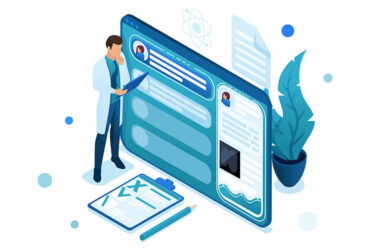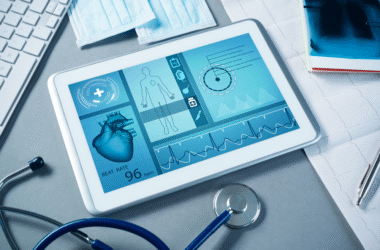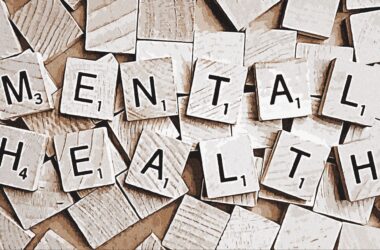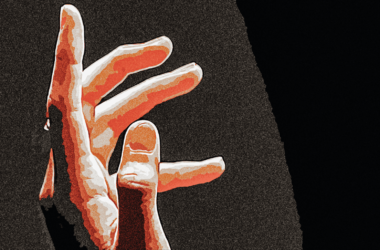Social media platforms are essential in our daily lives. They connect people.
Provide a place to talk, and allow for sharing of information. Social media plays a big part in promoting mental health.
This post discusses how social media supports mental health advocacy, awareness, and support.
It is important to know mental health affects our well-being in complex ways. Our emotional, mental, and social aptitude affects how we behave.
Mental health is about feeling good, managing stress, being productive, and supporting others.”
To have good mental health, you need to feel good about yourself and manage stress. It means performing well and helping others.
averstance
Table of Contents
Society recognizes the significance of mental health and well-being. It helps people talk and get support.
- People can share their mental health stories on social media. They can connect with others and challenge stereotypes.
- Dialogues encourage open talks about mental health. It promotes awareness, belief, and acceptance.
- Support networks provide online communities with mental health support.
Social media can help mental health. But it's important to remember the negative effects of misuse. Be responsible when using social media platforms.
Students use social media to communicate, entertain, and promote mental health awareness. Social media can lead to stress, anxiety, and depression, which people criticize.
When used, it can be a lifeline, a source of support, and a platform for education. Social media helps raise awareness of mental health by sharing information.
Mental health groups and experts are active on Twitter, Instagram, and Facebook. They share informative posts.
- Educative Content: Students can follow these accounts to learn about mental health. They provide reliable information on conditions, symptoms, and treatments. Social media can help make mental health less mysterious and reduce the surrounding stigma.
- You can use social media platforms to launch mental health awareness campaigns. Using hashtags in campaigns helps spread information and promote conversations among people.
- Mental health experts use social media to share tips on coping with stress and anxiety. Students can use these strategies every day and tell their classmates about them. This helps create a culture where everyone takes care of their mental health.
Recognizing signs of mental health issues in yourself or your friends. They can then seek help.
averstance
Social media promotes mental health beyond education. It functions as a platform for community building and support.
- Support groups give students a safe space to share experiences and emotions. If you have mental health issues, these groups can provide support and insight.
- Students can read stories from people who faced similar challenges in their lives. These stories give hope by showing that recovery is possible.
- Professional Help: Social media connects you with mental health specialists. They can give you guidance, support, and treatment.
Social media health sites share educative content and raise awareness. Content such as strategies for managing mental health issues.
They host support groups on social media, connecting students.
| Social Media Platform | Role in Promoting Mental Health |
|---|---|
| Sharing educative content, launching awareness campaigns | |
| Sharing personal narratives, strategies for managing mental health issues | |
| Hosting support groups, connecting students with mental health professionals |
Social media is a big part of our life. It has a big impact on mental health. The influence of it can go two ways.
Bring people closer or make them feel alone and worried.
Individuals create virtual communities to help them connect, engage, and share experiences. It's crucial for those who feel alone or judged due to mental health problems.
- Social media provides a sense of belonging. It gives instant access to support groups, forums, and platforms. Users can share experiences and seek advice.
- Education and awareness help people understand mental health problems. It helps people recognize and cope with these issues.
- Expression and Validation. This platform allows people to express themselves and get validation. When people share their stories, others support them, and they feel less alone.
Social media can help mental health. It can worsen anxiety and depression when not used well. Using these platforms can make you feel lonely.
They can lead to negative self-comparisons and create addiction.
- Comparison can harm our self-esteem and make us feel inadequate. Social media contributes to this.
- Cyberbullying can cause stress, anxiety, and depression for the victims.
- Spending time on social media can hurt mental health. It can cause addiction. Disrupts sleep, and reduces in-person social interaction.
We have conveniences on social media. But, we must focus on our mental health first.
averstance
Social media platforms have a wide reach. You can connect with peers who have similar experiences.
Mental Health Resources on Social Media
- Social media has pages, groups, and accounts about mental health. You can learn about mental health from these sources. They give information and education about different issues. You can find symptoms, treatments, and coping strategies. Combat negative attitudes towards mental health.
- Therapists and counselors use social media to connect with more people. They offer advice, host live sessions, and share helpful resources. Some provide private sessions through these platforms.
- On social media, there are support groups. People can share their experiences, challenges, and successes there. Join these groups to share your feelings and get support in a safe space.
Social media is helpful, but it can't replace professional help. Consult with a healthcare professional for accurate information and treatment.
averstance
Find Trusted Mental Health Resources on Social Media
Finding trusted mental health resources requires careful attention. Some tips are:
- Check the source. Look for credentials. Check professional background. Oversee other indicators of expertise.
- Be wary of sources promising quick fixes or extreme results. Mental health treatment requires time and professional guidance.
- Consider the community. A supportive and respectful environment is indicative of a reliable source.
Impact of Social Media Use on Mental Health
Social media is helpful, but it can't replace professional help. Consult with a healthcare professional for accurate treatment.
Having access to information and resources can be both positive and negative. It can expose people to triggering content and lead to cyberbullying. Yet, it can help people connect with supportive communities and express themselves.
One negative effect of increased access is that it can lead to poor sleep due to increased screen time.
| Positive Effects | Negative Effects |
|---|---|
| Access to information and resources | Exposure to triggering content |
| Connection with supportive communities | Social comparison and cyberbullying |
| Opportunity for self-expression | Increased screen time leading to poor sleep |
Use social media to optimize its benefits and cut potential harm. To make things easier, set limits, take breaks, and ask for help if you're overwhelmed.
averstance
It is important to be careful on social media, but it can raise mental health awareness in students. Students can boost their mental well-being by learning, talking, and connecting with others.
The connection between social media and mental health is complex. It has good and bad effects. To use these platforms, use them to connect and support, not stress and worry.









